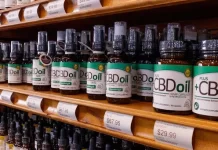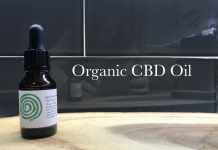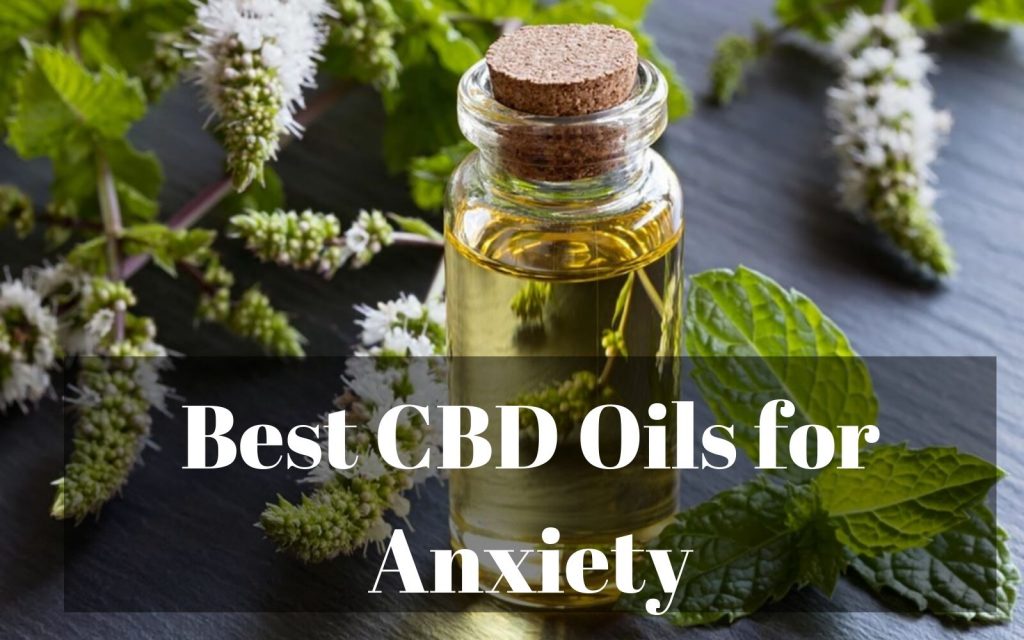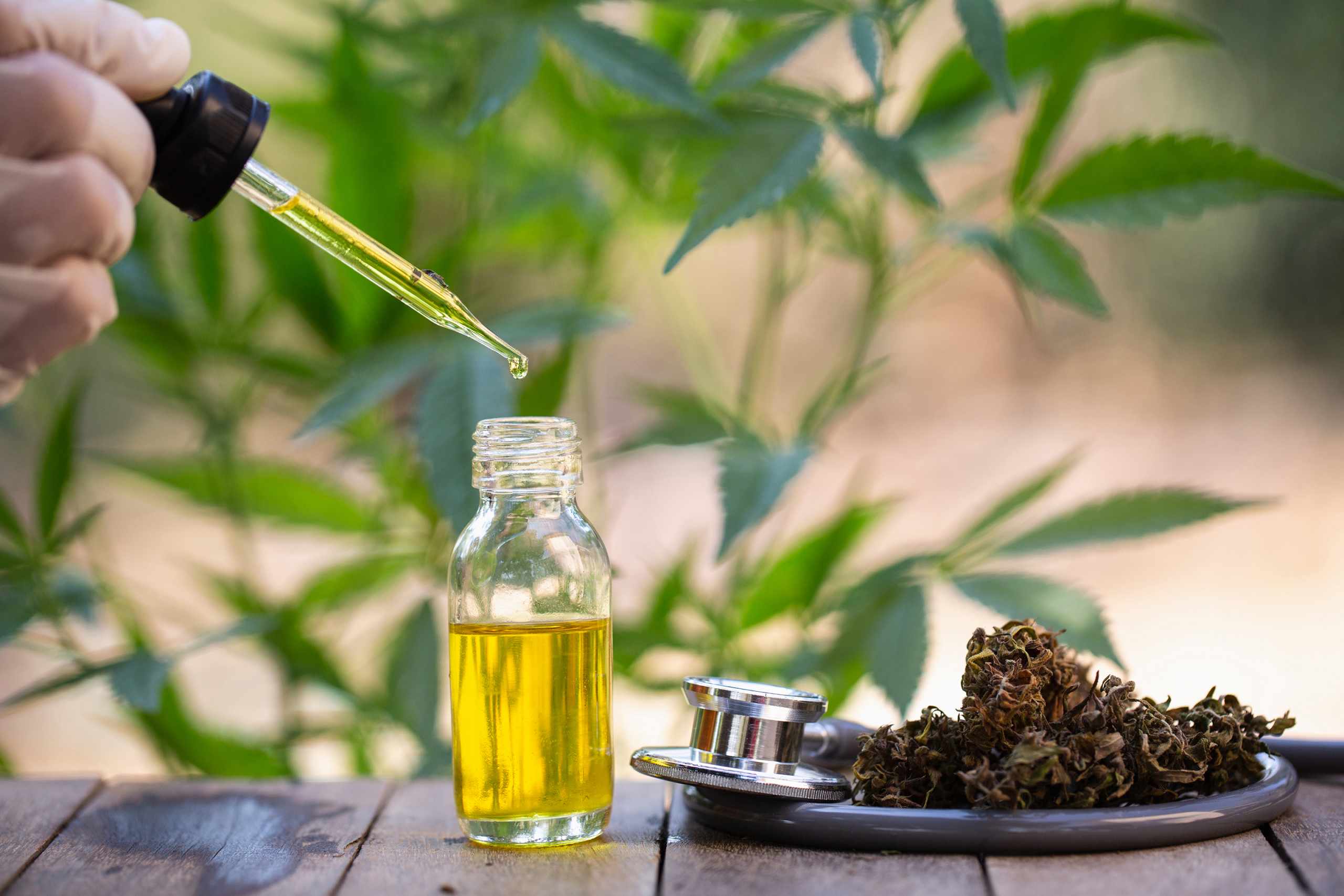Here we are talking about the best CBD Oil. Are you wondering to know about CBD? You are at right the right place. In this post, we are going to providing you the ultimate guide on CBD oil. Here is the information that you need to launch a CBD infused lifestyle.
So, let’s start with the basics!
Table of Contents
Overview:
- CBD (short for cannabidiol): A plant-based compound that is well-known for its calming effects. CBD or cannabidiol is extracted from hemp and cannabis plants
- Cannabis: A type of cannabis plant, which has 0.3% or more of the psychoactive compound THC (tetrahydrocannabinol)
- Hemp: A type of cannabis plant, which has 0.3% or less of the psychoactive compound THC (tetrahydrocannabinol)
- THC (short for tetrahydrocannabinol): It is a plant-based compound known for its psychoactive properties. THC extracts from cannabis plants
- Marijuana: It is said to a piece of the dried cannabis plant with a high level of THC (tetrahydrocannabinol)
- Psychoactive: These are the substances that affect the mind, mental process, or behavior
- Cannabinoids: These are biologically active chemical compounds found in cannabis plants
- Endocannabinoid system: A sophisticated molecular signaling system found in all vertebrates that in all among other things, the system which allows us to feel the effects of cannabinoids
- Certificates of Analysis (COA): The document shows all the ways a product meets a list of specifications. Typically, it is created by third-party laboratories without any association with the manufacturer of the product, as is how to ensure the accuracy of marketing claims.
- Measurable: It is verifiable. It depends on empirical evidence, including numbers and data.
- Anecdotal: It is unverifiable. It depends on personal reports, opinions, and observations.
What is CBD?
In simple words, CBD is a plant-based compound that is well-known for its calming effects. CBD is a short form of cannabidiol, and it is said to be a chemical compound from the Cannabis Sativa plant that is also called marijuana or hemp.
CBD is 100% natural and widely used in products like oils and edibles to relax and calm. When discussing cannabis in the context of CBD, we have just mentioned a plant containing over 400 compounds of cannabinoids. No doubt, some cannabinoids like tetrahydrocannabinol, or THC, are psychoactive, and they affect your mental processes. However, there are many cannabinoids like CBD, which are not psychoactive. What Is Cannabidiol
What Does CBD Stand For?
The short answer is that CBD stands for cannabidiol. The term CBD helps to spare us from trying to say & spell cannabidiol over and over again.
Most cannabinoids almost have the same names; this makes you tell about the share cannabis their mother plant.
- Cannabidiolic Acid (CBDA)
- Cannabinol (CBN)
- Cannabigerol (CBG)
Does CBD Oil Get You High?
The simple or straight-forward answer is ‘No’ – CBD does not get you high!
CBD is an entirely different compound from tetrahydrocannabinol, and its effects are quite complex. It doesn’t produce a “high” or changes a person’s state of mind as it is not psychoactive. But, remember that CBD influences the body to use its own endocannabinoids more effectively.
According to s study posted to Neurotherapeutics, CBD itself does very little to the ECS. Rather than, CBD activate or activates or inhibits other compounds in the endocannabinoid system.
For instance, CBD is something that stops the body from absorbing anandamide. Anandamide is a compound associated with regulating pain. So, increased levels of anandamide in the bloodstream can reduce the amount of pain a person feels.
Also, CBD may limit inflammation in the brain and nervous system that can benefit individuals experiencing pain, insomnia, and certain immune-system responses.
THC vs. CBD:
So, THC and CBD Oil are two different compounds. And THC is said to psychoactive, which affects your mental processes (it gets you high). And, CBD is not psychoactive.
CBD Oil and THC are like siblings as they both have a lot in common and have several key differences.
Different cannabinoids, THC and CBD, both extract from the same parent plant, but they interact in your body in different ways, specifically in your body’s endocannabinoid system.
THC and CBD share a molecular structure, but they both have a different arrangement of atoms. This simple difference of atomic arrangement elaborates why these compounds interact with your endocannabinoid receptors in different ways – and even why CBD doesn’t get you high while THC does.
How Long Does CBD Stay in Your System?
In simple words, CBD may stay in an average individual’s system for up to 5 days. However, the length of time CBD stays in a person’s system fluctuates, depending on various factors that include dosage, CBD form, the person’s weight, and more.
If there is any chance you might have to take a drug test, then obviously you will wonder to know how long CBD stays in your system. (But for the record, if the CBD you got consists of THC or CBN, then you must be fine, even if the CBD is still in your system.)
Studies reported that CBD’s lifespan in the body have found, in general, the compound may stay in the blood for about up to 5 days. Other studies depict that CBD might stay in the urine only for 24 hours.
What Drugs Should Not Be Taken with CBD?
Remember that many drugs could interact with CBD, and it is important to consult your health care provider before you mix CBD with medications, including over-the-counter medications.
In the grand scheme of things, the experts scratched CBD research’s surface, along with investigations and experiments. That’s why it is hard to find a straightforward answer about what drugs you should not mix with CBD.
Experts know that individuals use the same set of enzymes to metabolize CBD to metabolize most medications available in the store. It means that there is a chance CBD Oil could interact with a majority of medications.
Keep in mind, this doesn’t mean that the interactions would be catastrophic, noticeable, or even significant. Still, there is a high chance that CBD and your medication could interact & even alter each other’s intended effects, which leads to different outcomes in your body.
However, it will take time for experts to make a more actual or straightforward answer to this question. But, for now, you should have to consult your health care provider or pharmacist before mixing CBD with any medications.
CBD Dosage Calculator:
If you are trying CBD Oil for the first time, you probably don’t know how much to take. Remember that all the products you find have vastly different concentrations, so it looks like a daunting challenge to even guess what a standard dose might be. Benefits Of CBD
Don’t fret; you can try the best CBD Oil dosage calculator to find your ideal CBD dosage.
You just have to put some parameters, and the CBD dosage calculator recommends a dosage. The calculator computes answers on their pools of self-reported user data. But, before accounting for such recommendations, you should have to consult your MEDICAL PRO!
Explore More About CBD Oil:
What is CBD Oil?
In simple terms, CBD oil is the CBD compound infused into a carrier oil. Technically, CBD is a compound, a non-psychoactive cannabinoid that assists to reacts with receptors in our bodies to produce a calming effect.
Yes, CBD oil products mimic the naturally oily plant material that they are extracted from! The CBD-rich parts of the cannabis plant that is naturally resinous and oily. So, when individuals extract the CBD from these bits, what they get is already thick and oily. CBD is primed for infusions into other carrier oils.
So, you enjoy your CBD oil, and then it means you are enjoying CBD close to its natural state.
Did You Know! CBD Oil
The CBD that extracts to make oils and other products will come from trichomes. Some experts referred to trichomes as ‘Plant Hair’ because of their strong growth structure and ability to retain metabolites.
The CBD solvent extraction from trichomes will vary in CBD potency; it all depends on the presence of CBD in the trichomes and also the method that is used to extract the CBD from the trichomes.
CBD Oil Effects:
A wide range of people reports a wide range of effects when they are taking CBD. As we already mentioned above, CBD doesn’t make you high like THC, so what does CBD do? What are the main effects that attract individuals to this trendy compound?
Before knowing about it, let us group the types of CBD benefits into two categories.
Measurable Effects of CBD Oil
The outcomes of these effects were studied, quantified, and even corroborated by multiple controlled studies and trials. In fact, such effects involve measurable factors that including the number of seizures or blood pressure readings.
Some measurable effects of CBD include:
- Decreased risk of heart disease
- Seizure management
Anecdotal effects:
The outcomes of Anecdotal effects have been reported by different people using CBD, but they did not mention a measurable component, or even they said it couldn’t simply be measured. For instance, a reduction of pain is an anecdotal benefit as you have no universally accepted measurement for pain, and pain is subjective. However, it lives in the ‘eye of the beholder,’ so to speak.
Some anecdotal effects of CBD include:
- Decreased anxiety.
- Mitigated addiction withdrawal symptoms
- Lessened pain
CBD Oil Benefits:
Studies reported that CBD holds promise for a variety of health issues.
People who used CBD have reported ample benefits. However, there are many benefits and effects that could be considered subjective. Also, these benefits come with anecdotal evidence, which could be extremely compelling for an individual looking to achieve similar benefits.
These are the sampling of some potential CBD benefits:
- Pain Management – Optimistic studies depicted that rats on cannabidiol or CBD had decreased activity in brain regions associated with pain.
- Anxiety and Depression Reduction – a study reported that CBD could reduce anxiety in humans preparing to speak publicly. Animal studies revealed effects similar to antidepressants.
- Chemotherapy Side Effect Management – Cannabidiol assists in reducing chemotherapy-induced nausea.
- Skin Clearing – A laboratory test-study reported that CBD could help block the production of excess skin oils and even the inflammatory response, which leads to acne
- Seizure Management – CBD is something that helps to reduce epileptic seizures.
- Heart Health – Several studies subjects saw a decrease in blood pressure when taking CBD, and also CBD appeared to be able to reduce inflammation and cell death in individuals who had already succumbed to heart disease
What is CBD Oil Good For?
The short answer is Seizure reduction. No doubt, CBD is potentially good for several numbers of things, but seizure reduction is the most well-known research-backed CBD benefit.
Individuals anecdotally reported a variety of CBD benefits. However, when it comes to benefits that most health care providers agree has enough measurable evidence, epileptic seizure reduction takes the cake.
Also, the U.S Food and Drug Administration (FDA) found the evidence for CBD’s seizure reducing abilities compelling enough to pursue.
The expert of the FDA’s found enough evidence to approve a CBD-based treatment for epilepsy. However, this particular approval made history as the first FDA acceptance of a drug made from cannabis.
Is CBD Oil Legal?
In this paragraph, Cannabidiol or CBD from industrialized hemp is federally legal. Still, if manufacturers make claims of “therapeutic benefits,” then the CBD product could be regulated, which means a manufacturer could be selling & marketing legal CBD in a way that is said to be unlawful.
To make things more complicated, the CBD source makes a difference when it comes down to regulations.
- Industrialized hemp is federally legal.
- Cannabis is federally illegal.
- CBD can extract from either cannabis plants or hemp plants
- So, if you are living in a state in which recreational marijuana legalized, then you are likely in the clear no matter what
- And, if you are living in a state that does not allow marijuana, and if it happens to buy the source of CBD from cannabis instead of hemp, then you could run into trouble.
- Finally, you have to know your state’s hemp and cannabis regulations. So, Don’t assume that your ability to purchase a CBD means it’s legal.
CBD Oil Side Effects:
These are some CBD side effects that have been reported so far. However, these are all side effects some individuals have experienced. But, remember that there is no guarantee you will feel any of the mentioned effects or that you won’t get prone to effects that are not on this list.
Common short-term side effects:
- Dry mouth
- Lightheadedness
- Drowsiness
- Nausea
- Anxiety
Common long-term effects:
- Dental Issues – This issue relates to the short-term side effects of dry mouth. Remember that moisture protects your teeth and gums, and a dry mouth leaves individuals more susceptible to cavities and gum problems.
- Increased Liver Enzymes – whether this effect rises ultimately into a net negative or a net positive remains to be seen
CBD Oil vs. Hemp Oil
Takeaway:
If you are decided to consume CBD, you have to read the labels of all the products you purchase. Moreover, the products called ‘CBD Oil’ and products called ‘hemp oil’ might be nearly the same when it comes to CBD content. – But, also, they can be radically different depending on their plant components, their plant sources, and even the ways they were extracted.
Read On:
Usually, consumers got confused by terms like ‘CBD,’ ‘hemp,’ and ‘marijuana.’ In fact, these all terms have multiple meanings and can be used in popular but incorrect ways that only adds to the confusion.
However, the root of the matter lies in the plant sources. In fact, CBD is found in both cannabis plants and hemp plants. Yes, cannabis and hemp are said to be identical twins in the plant world as they look & smell almost exactly the same. That’s the reason why they are hard for individuals to distinguish.
However, Experts depict that Cannabis plants with 0.3% or less THC are said to be hemp. And, Cannabis plants with more than 0.3% THC are said to be marijuana.
So, what does this mean for CBD products? Well, here is a little cheat sheet, based on information from Medical Today:
- CBD Oil = cannabis or hemp stalks, leaves, and flowers. Yes, CBD oil will always include CBD (of course)
- Hemp Oil or Hemp Seed Oil = cannabis or hemp seeds. However, these products may or may not contain CBD.
CBD Oil With THC:
Locations at which recreational marijuana is legal, consumers can enjoy CBD oil & products loaded with some percentage of THC if they want a mild High without some of the negative effects of THC.
Yes, Leafly has the necessary requirements for anyone who is hoping to blend their CBD with some THC.
Keep in mind, the basic breakdown of CBD and THC combinations can be summarized in three basic “configurations.”
- High THC and low CBD – And Leafly says products that are loaded with 10-30% THC and have only a little CBD fall into this category
- A balanced amount of THC and CBD – So, Leafly says products that are loaded with 5-15% of both THC and CBD fall into this category.
- High CBD and low THC – Leafly says products that are loaded with 5-20% CBD and 5% or less of THC fall into this category.
Studies reported that High CBD products work best for individuals who don’t want to get the euphoric high THC provides or those with a particular sensitivity to THC.
CBD Oil Without THC:
CBD oil without THC content will only provide the purported calming effects of CBD without any of the ‘high’ that comes with THC.
No doubt, these products work best for individuals who can’t consume any THC due to their jobs.
THC-free products (including vape juices, oils, and gummies), their recommended brands are listed below:
- cbdMD
- CBDistillery
- Lazarus Naturals
- Joy Organics
- Medterra
- Charlotte’s Web
- CBDfx
- Thought cloud
How much CBD do you need to take?
- When it comes to experimenting with CBD, you ought to pay attention to the effects and document your dosages. If you are a beginner, you should start with a low dose and slowly add more.
How your product is best absorbed?
- Remember that CBD percentages listed on labels don’t translate to literal absorption for every individual. The CBD% in a product indicates that how much you might absorb if your body processes the CBD perfectly, which it probably won’t
- You ought to check all the instructions on the label of your product. Many of them mention tips for optimal absorption.
CBD Oil Dosage:
No doubt, CBD affects different individuals differently, same as how caffeine affects individuals differently. Don’t fret; with some observation and experimentation, you will soon know how CBD affects you!
Several studies revealed that you have to ask your doctor where to start. If that is not an option, then you can stick to one of the most popular starting doses: 20-40 mg per day. Does CBD Oil Work For Pain Relief
You have to scale up or down in increments of 5 mg per day until you achieve the desired effect. You should keep a diary or log as it helps you remember how much CBD you took and how it affected you!
How Long Does It Take for CBD Oil to Work?
It all depends on your body chemistry, which means how much you take, where it was sourced, what form you take it in, and more!
Keep in mind, effects and absorption should occur simultaneously.
These are the main factors that will affect your absorption:
- Firstly, The form of your CBD – CBD edibles will likely affect you slowly as your body has to break down a few foods to get to the CBD. CBD tinctures are something that will likely be quicker to impact you
- Secondly, The quality of your CBD – The full-spectrum of CBD oils will retain the full range of compounds, which provide blissful CBD feelings. You should also check products for 3rd party lab reports and even Certificates of Analysis (COA), which verify exactly what you are getting in your product.
- Thirdly, About Dosage – remember that the more CBD you consume, the faster you will feel the effects.
- Above all, Your Body Weight and Body Chemistry – Be mindful when you try CBD and begin figuring out how fast it usually works for you!
CBD Oil Uses:
However, Most experts depict that CBD is well-known to combat epileptic seizures. Even there is an FDA-approved drug for this use.
However, medical practitioners are still on research for the usages and benefits of CBD. It is reported that many individuals are already using CBD in a variety of forms for a variety of ailments.
- Forms of CBD use include massage oils, vapor, oil, edibles, capsules, topical lotions and patches , and more.
- Reasons cited for CBD use include pain management, sleep improvement, stress reduction, and more.
CBD Oil for Pain:
So, A study found that CBD is quite effective for treating chronic pain and reducing inflammation. Also, one review of existing literature examined multiple studies and trails in which found that CBD can help to treat chronic pain.
In this paragraph, Everyone has a cell-signaling system called the endocannabinoid system (ECS). Only a few researchers think that CBD is something that interacts with a core component of the ECS – endocannabinoid receptors in your brain and immune system. The studies conducted between 1975 and March 2018 examined that CBD is effective for various types of pain, including:
- cancer pain
- neuropathic pain
- fibromyalgia
CBD Oil for Anxiety:
Moreover, Some studies depict that CBD is something that lessened the behavioral signs of anxiety, which include mood swings, avoidance, and jumpiness.
However, Several other studies reveal that CBD lessened the physical signs of anxiety, which include dizziness, racing heart, sweaty palms, and chest pain.
Above all, Optimistic studies show promise for CBD’s use in a range of anxiety disorders that include social anxiety disorder (SAD), generalized anxiety disorder (GAD), and post-traumatic stress disorder (PTSD).
CBD Oil for Sleep:
However, Study evidence reveals that CBD may assists individuals fall asleep and get more sleep. According to scientific studies, CDB works best by interacting with two receptors in your brain:
- Firstly, GABA” promotes relaxation and cracks down on overactive brains.
- Secondly, “Serotonin” regulates mood and anxiety.
Best CBD Oil:
Remember that all CBD oils are not created equally. So, adopt smart shopping strategies and aim for trusted brands to get the best possible products.
Here are some best CBD oils:
- Royal CBD
- CBD Pure
- HempBombs
- CBDistillery
- NuLeaf Naturals
Most Potent CBD Oil:
These are the most potent CBD oils per price:
$0.04 per milligram CBD oils:
- Lazarus Naturals
- Medterra
- Pure Hemp Botanicals
$0.05 per milligram CBD oils:
- cbdMD
- Pure Relief
- CBDistillery
$0.07 per milligram CBD oils:
- Receptra Naturals
$0.08 per milligram CBD oils:
- Firstly, Mother Moon Hemp Company
- Secondly, Hoboken Hemp Co.
- Thirdly, Seabedee
$0.09 per milligram CBD oils:
- Firstly, Charlotte’s Web
- Secondly, Kanibi
- Thirdly, Joy Organics
- RE: Botanicals
$0.10 per milligram CBD oils:
- Mission Farms CBD
- SabaiDee
- Nuleaf Naturals
- Pure Spectrum
- Tikun Hemp
Best CBD Skin Care Products:
No doubt, the beauty industry is getting high on CBD or cannabidiol. So, Many studies depicted that CBD is a powerful antioxidant and anti-inflammatory agent. Hence, the good news is that CBD has now started to pop up in gels, serums, gels, creams, and various other skincare products. No doubt, CBD products can help your skin look radiant and youthful. Well, check out the given list of the best CBD products:
Lord Jones High CBD Formula Body Lotion
Pros:
- Gluten-free
- Vegan
- Lab-tested
- Firstly, No THC
- Secondly, No parabens
- Thirdly, No phthalates
- Above all, No formaldehyde and synthetic dyes
- Cruelty-free
Cons:
- None
The CBD Skincare Co. CBD Infused Exfoliating Cleanser:
Pros:
- Contains essential oils
- Organic
Cons:
- Expensive
Populum Full Spectrum Hemp Oil:
Pros:
- For oral and topical use
- Gets absorbed easily
- Instant cooling effect
Cons:
- Contains THC
- Expensive
I Pekar Tissue Repair Serum Infused With CBD Oil:
Pros:
- Firstly, 100% natural and organic ingredients
- Gluten-free
- Not tested on animals
- so, 100% recyclable packaging
Cons:
- Contains THC (less than 0.3%)
Isodiol CannaCeuticals CBD7 Repairing Night Cream:
Pros:
- THC-free
- Contains hyaluronic acid
Cons:
- Expensive
Kana Lavender Hemp Sleeping Mask:
Pros:
- Contains hyaluronic acid
- And Contains organic hemp-derived CBD
- Gel-based formula
- Easily to apply
Cons:
- Expensive
CBD For Life Pure CBD Eye Serum:
Pros:
- 95% naturally derived
- Firstly, No parabens
- And No artificial color
- Then, No formaldehyde
- No phthalates
- So, No GMOs
- Not tested on animals
Cons:
- None
Charlotte’s Web Hemp Infused Cream:
Pros:
- Contains botanical extracts
- No synthetic fragrances
- Gluten-free
- Cruelty-free
- BPA-free packaging
Cons:
- None
Cannuka CBD Calming Eye Balm:
Pros:
- 99.7% pure
- Cruelty-free (PETA certified)
Cons:
- None
Shea Honey Oatmeal CBD Infused Body Bar:
Pros:
- Contains lab-tested CBD oil
- Organic ingredients
- No synthetic chemicals
Cons:
- None
Disclaimer:
In conclusion, All the information mentioned above is taken into account for informational/educational purposes only. Before taking any CBD product, you should have to consult your MEDICAL PRO!









